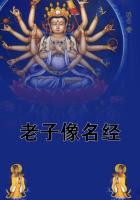The Abbey of Poissy has been rendered famous by old authors as a place of pleasure, where the misconduct of the nuns first began, and whence proceeded so many good stories calculated to make laymen laugh at the expense of our holy religion. The said abbey by this means became fertile in proverbs, which none of the clever folks of our day understand, although they sift and chew them in order to digest them.
If you ask one of them what the /olives of Poissy/ are, they will answer you gravely that it is a periphrase relating to truffles, and that the /way to serve them/, of which one formerly spoke, when joking with these virtuous maidens, meant a peculiar kind of sauce. That's the way the scribblers hit on truth once in a hundred times. To return to these good recluses, it was said--by way of a joke, of course--that they preferred finding a harlot in their chemises to a good woman.
Certain other jokers reproached them with imitating the lives of the saints, in their own fashion, and said that all they admired in Mary of Egypt was her fashion of paying the boatmen. From whence the raillery: To honour the saints after the fashion of Poissy. There is still the crucifix of Poissy, which kept the stomachs warm; and the matins of Poissy, which concluded with a little chorister. Finally, of a hearty jade well acquainted with the ways of love, it was said--She is a nun of Poissy. That property of a man which he can only lend, was The key of the Abbey of Poissy. What the gate of the said abbey was can easily be guessed. This gate, door, wicket, opening, or road was always half open, was easier to open than to shut, and cost much in repairs. In short, at that period, there was no fresh device in love invented, that had not its origin in the good convent of Poissy. You may be sure there is a good deal of untruth and hyperbolical emphasis, in these proverbs, jests, jokes, and idle tales. The nuns of the said Poissy were good young ladies, who now this way, now that, cheated God to the profit of the devil, as many others did, which was but natural, because our nature is weak; and although they were nuns, they had their little imperfections. They found themselves barren in a certain particular, hence the evil. But the truth of the matter is, all these wickednesses were the deeds of an abbess who had fourteen children, all born alive, since they had been perfected at leisure. The fantastic amours and the wild conduct of this woman, who was of royal blood, caused the convent of Poissy to become fashionable; and thereafter no pleasant adventure happened in the abbeys of France which was not credited to these poor girls, who would have been well satisfied with a tenth of them. Then the abbey was reformed, and these holy sisters were deprived of the little happiness and liberty which they had enjoyed. In an old cartulary of the abbey of Turpenay, near Chinon, which in those later troublous times had found a resting place in the library of Azay, where the custodian was only too glad to receive it, I met with a fragment under the head of The Hours of Poissy, which had evidently been put together by a merry abbot of Turpenay for the diversion of his neighbours of Usee, Azay, Mongaugar, Sacchez, and other places of this province. I give them under the authority of the clerical garb, but altered to my own style, because I have been compelled to turn them from Latin into French. I commence:--At Poissy the nuns were accustomed to, when Mademoiselle, the king's daughter, their abbess, had gone to bed..... It was she who first called it /faire la petite oie/, to stick to the preliminaries of love, the prologues, prefaces, protocols, warnings, notices, introductions, summaries, prospectuses, arguments, notices, epigraphs, titles, false-titles, current titles, scholia, marginal remarks, frontispieces, observations, gilt edges, bookmarks, reglets, vignettes, tail pieces, and engravings, without once opening the merry book to read, re-read, and study to apprehend and comprehend the contents. And she gathered together in a body all those extra-judicial little pleasures of that sweet language, which come indeed from the lips, yet make no noise, and practised them so well, that she died a virgin and perfect in shape. The gay science was after deeply studied by the ladies of the court, who took lovers for /la petite oie/, others for honour, and at times also certain ones who had over them the right of high and low jurisdiction, and were masters of everything --a state of things much preferred. But to continue: When this virtuous princess was naked and shameless between the sheets, the said girls (those whose cheeks were unwrinkled and their hearts gay) would steal noiselessly out of their cells, and hide themselves in that of one of the sisters who was much liked by all of them. There they would have cosy little chats, enlivened with sweetmeats, pasties, liqueurs, and girlish quarrels, worry their elders, imitating them grotesquely, innocently mocking them, telling stories that made them laugh till the tears came and playing a thousand pranks. At times they would measure their feet, to see whose were the smallest, compare the white plumpness of their arms, see whose nose had the infirmity of blushing after supper, count their freckles, tell each other where their skin marks were situated, dispute whose complexion was the clearest, whose hair the prettiest colour, and whose figure the best. You can imagine that among these figures sanctified to God there were fine ones, stout ones, lank ones, thin ones, plump ones, supple ones, shrunken ones, and figures of all kinds. Then they would quarrel amongst themselves as to who took the least to make a girdle, and she who spanned the least was pleased without knowing why. At times they would relate their dreams and what they had seen in them. Often one or two, at times all of them, had dreamed they had tight hold of the keys of the abbey. Then they would consult each other about their little ailments.















